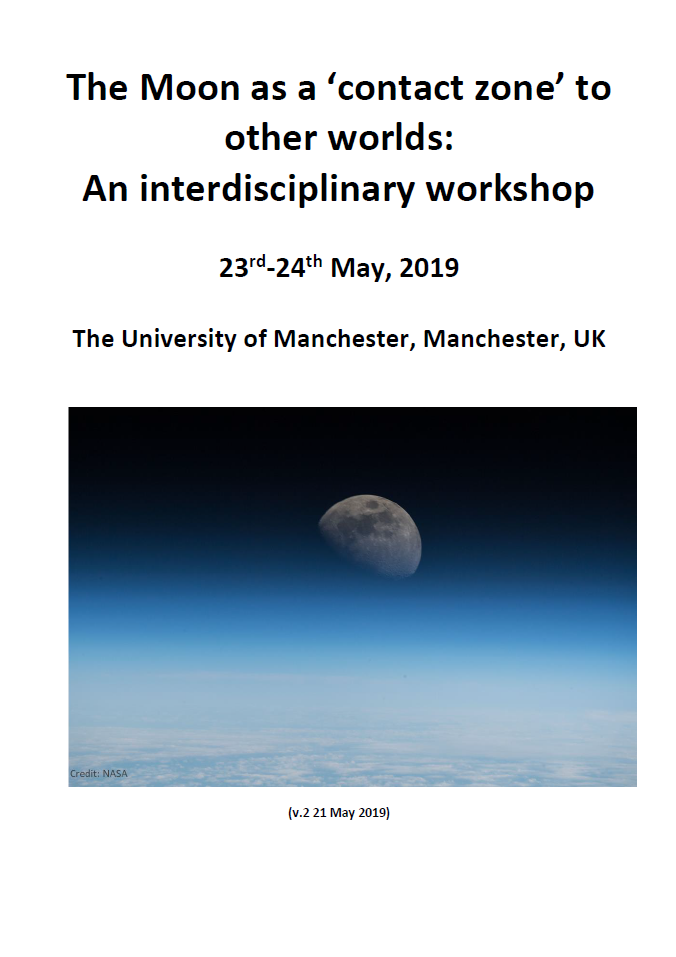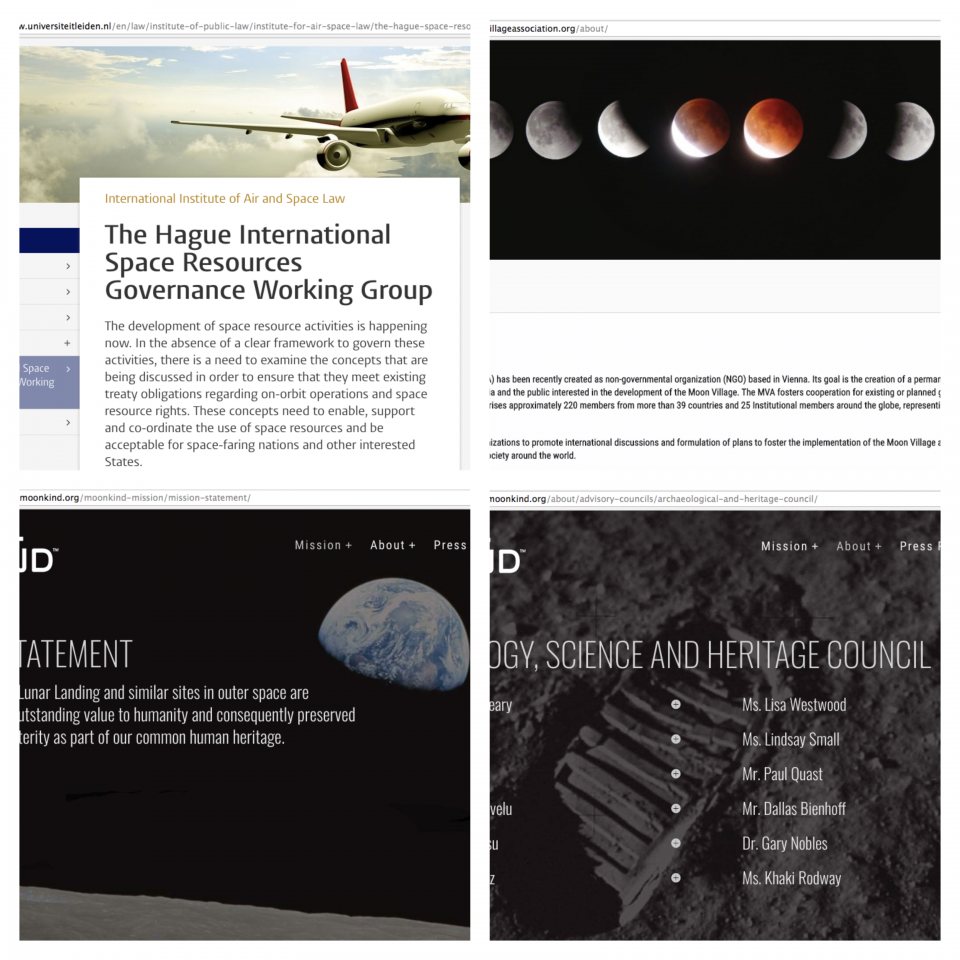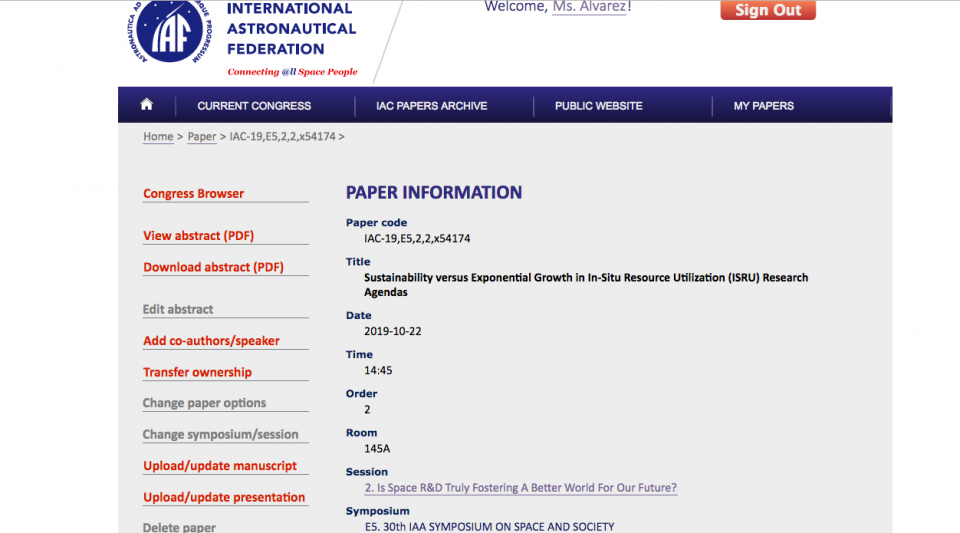
Cite as:
Alvarez, Tamara, Vidmar, Matjaz. 2019. "Engaging outer space." In "Social Studies of Outer Space." In Innovating STS Digital Exhibit, curated by Aalok Khandekar and Kim Fortun. Society for Social Studies of Science. August.
This essay is part of the meta essay on the Social Studies of Outer Space group. It answers to the shared question of "how does this STS innovation engage with audiences beyond the university?"
TBD
Furthering its theme, Innovations, Interruptions, Regenerations , the 2019 annual 4S meeting in New Orleans will include a special exhibit, Innovating STS , that showcases innovations ...Read more
All Innovating STS exhibits are oriented by nine shared questions in order to generate comparative insight. These are:
ARTICULATION: What STS innovations (of theory, methodology, pedagogy...Read more
Space activities mobilize a wide range of experts, including planetary scientists, geologists, space lawyers and policy-makers, engineers of all kinds, diplomats, physicians, physical trainers, schoolteachers, nation-state presidents and prime ministers, astronauts… Though artists have long been recruited by space agencies for outreach purposes, social scientists’ and humanities scholars’ positions on space exploration have often been disregarded and, when unsympathetic to the agency’s mission, blatantly dismissed. As exposed in Tackling the New Age of Space, the proliferation of public and private space initiatives since the mid-2000s, as well as the intensification of geopolitical competition in outer space in the last five years, gives a new urgency to the critical participation of STS scholars in debates and decision-making processes about space exploration and utilization.
As pointed out by some of our informants and collaborators, experts working in the space sector are often discouraged from expressing criticism towards agencies or big industries’ plans, as they are dependent on their funding to develop their work. For this reason, some planetary scientists and astronomers have begun partnering with social scientists of outer space to join forces and, as a lunar scientist recently put it, “force agencies and decision-makers to listen.”
In May 2019, some members of our network participated in a symposium at the University of Manchester, The Moon as a Contact Zone to other worlds, where experts from the planetary science community and STS scholars debated, among other things, the ethics behind the extraction and exploitation of lunar volatiles that have remained untouched for billions of years. In truly posthumanist fashion, lunar geologists challenged current exploration scenarios, asking: Why obliterate these volatiles, these unique archives of solar system history, for the aggrandizement of humans? What do we, people from Earth, know about these timescales, these billions of years? Why is the inorganic considered dead?
In addition, some of us have been engaged in several initiatives where legal and policy decisions are being made and mission scenarios planned. Tamara Alvarez, for instance, participates in the work of several organizations that have recently become observers to the United Nations Committee for the Peaceful Uses of Outer Space, including the Moon Village Association (MVA) and For All Moonkind. In particular, Alvarez is member of the MVA Cultural Implications and Cooperation & Coordination Working Groups, the Hague International Space Resources Governance Working Group, and For All Moonkind’s Archaeology, Science and Heritage Council where, drawing upon posthumanist and postcolonial perspectives, she challenges the current approach to space colonization and resource exploitation, pushing for the consideration of indigenous struggles in debates about settlement and land rights, as well as the defense of stellar bodies as humanity’s commons.

Our members have also made their —often critical— voices heard in important space events such as the International Astronautical Congress, the largest space gathering where agency administrators and managers, entrepreneurs, policy-makers, scientists and engineers annually gather.
